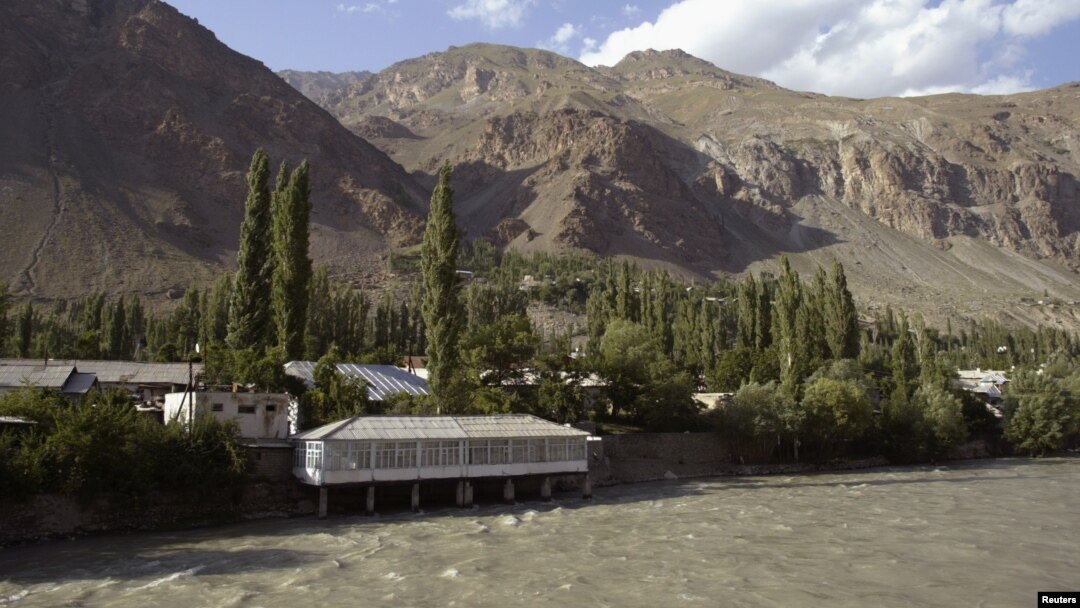The glaciers of the Pamir and Alay Mountains in Tajikistan, which cover 93 percent of its surface area, are melting and the process is happening faster than ever before. Air pollution, waste, and corruption are depriving Tajikistan of its “natural wealth.”
As the world comes together in Paris, France, to tackle climate change issues, VOA Uzbek reports from this Central Asian republic where grand projects for the construction of new dams may have slowed down but not much else is being done to save the environment.
The debate surrounding the aluminum plant in the border area with Uzbekistan and the propaganda about the construction of Rogun dam have calmed down over the past year. The Tajik government now rarely raises these issues in public.
According to the top environmental agency in the country, Aga Khan, the spiritual leader of Ismaili Muslims around the world, has become a beacon of hope when it comes to preserving Tajikistan’s natural environment. The Aga Khan is the main sponsor of environmental projects, both large and small. His foundation is planning to create a new agency soon, officials say. Meanwhile, Tajikistan’s population continue to voice discontent about the lack of oversight and attention to the environment in their country.
Doctor Jabbor Kholiqulov says that most of the time no one seems to care about the environment. Perhaps some individuals do, but in general, the population is ignorant about what is really at stake, he states.
Kholiqulov sees the effects of global warming and degradation of the environment particularly in the fields of health and agriculture.
“Our fruits and vegetables have lost their real taste. The level of chemicals in them are very high. You can see how bad the taste is from the fact that even our livestock refuses to eat them. Where do we go to complain? Nowhere. Try if you want. They will punish you for complaining.”
Kholiqulov discusses the level of fear people feel toward the authorities. Deeply rooted repression and corruption have turned citizens into insensitive subjects, the doctor complains.
Sharifboy Halimov, a former official with the Tajik State Environmental Committee, says that the government is aware of how bad conditions are in the country. There is sufficient research being done to find solutions and the results are clear. But do we have the political will to act on them?
Kholbek Turdibekov, an Uzbek intellectual from Khojand, views the current environmental conditions as alarming and regrets that the state has only offered “empty political solutions.” There is no public debate, nor accountability about the urgent environmental problems facing the nation.
Air pollution should not be underestimated, says Dr. Kholiqulov. Regulation should not only consist of imposing taxes. Tajikistan’s rivers are polluted, he says. Drinking from them can cause numerous illnesses and in many cases has worsened the livelihood of an already suffering population. Nearly universal unemployment, labor migration, a lack of resources, and bribery-based public services are contributing to the rapid decline of overall conditions in every sphere.
“People know that things are bad and are getting worse but where can they go to complain? I am really worried about the situation because I see the effects in my patients every day. For example, industry workers who suffer from lung diseases... They are silent victims. They can’t afford to lose their jobs. I tell people to eat healthy but do they really have a choice? I recommend drinking clean water but many have no access to it,” says Kholiqulov.
Davron Saidkhojayev, a member of the local environmentalist association and a recent graduate of Tajik State University, is hopeful that his country will be able to tackle these issues in the future. Real reforms and energy independence are crucial, he says, referring to the fact that while Tajikistan has plenty sources of water and energy it lacks a proper system of production and supply. Fixing these issues will greatly improve peoples’ lives, says Saidkhojayev. Foreign partners such as the United States should help, he adds.
“We should try harder to attract investment into these fields and work with major powers overseas and learn from them,” says the young specialist.


